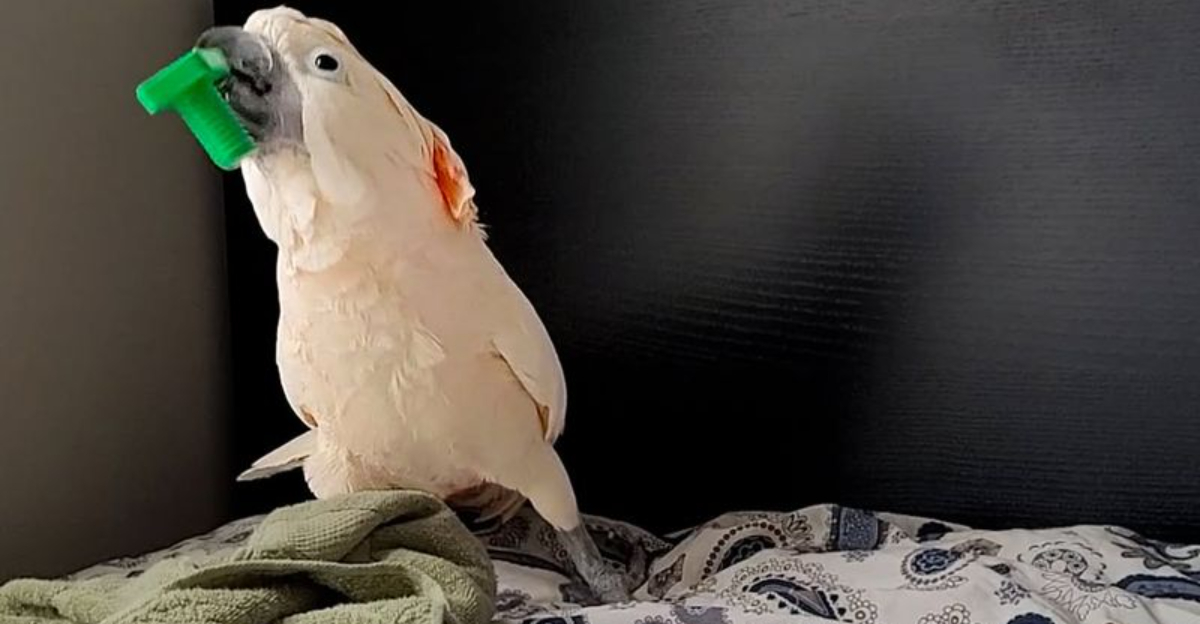Parrots are captivating creatures, known for their vibrant colors and engaging personalities. For a parrot owner, ensuring your feathered friend is happy and healthy is paramount.
Understanding the subtle and more obvious signs of their well-being can lead to a more fulfilling relationship with your avian companion. So, let’s discover the top indicators that your parrot is thriving in its environment.
1. Bright, Shiny Feathers
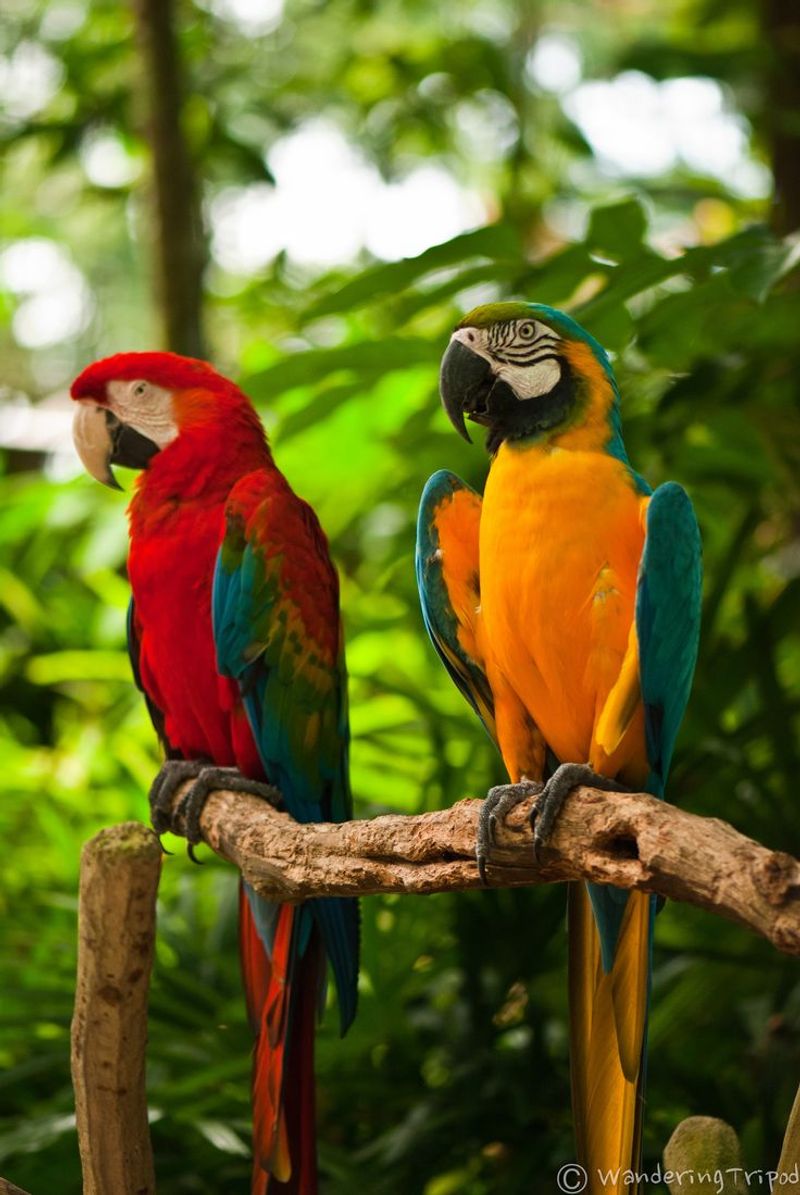
One of the most apparent indicators of a happy and healthy parrot is its plumage. When a parrot’s feathers appear bright, smooth, and iridescent, it’s a positive sign of their overall well-being. Healthy feathers are not just about aesthetics; they reflect proper nutrition and grooming practices.
Parrots with dull, frayed, or missing feathers may be stressed or suffering from a nutritional deficiency. Ensuring a balanced diet rich in vitamins and minerals will promote feather health. Regular baths or misting can also keep their feathers in top condition.
A parrot that takes pride in its appearance is likely content and comfortable in its surroundings. Feather plucking or over-preening, on the other hand, might indicate stress or boredom. Observing your parrot’s grooming habits can provide insights into their emotional and physical state.
Providing toys and engaging activities can help divert any negative behaviors, ensuring your parrot remains vibrant and lively.
2. Energetic Behavior
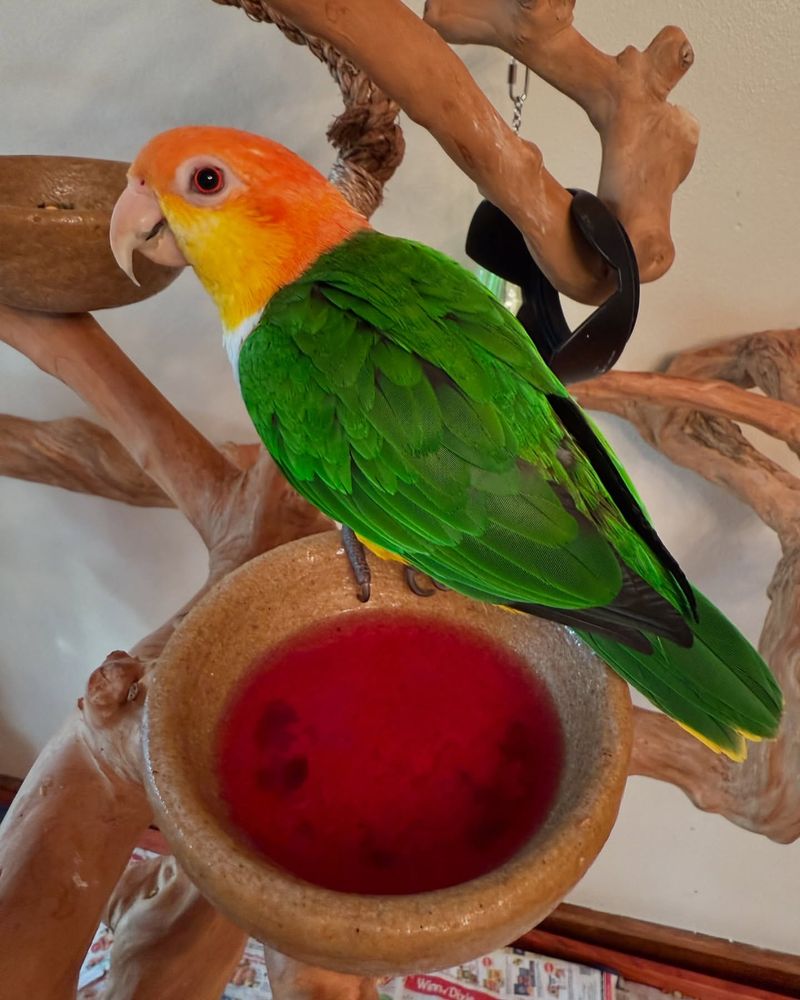
A happy parrot is an energetic parrot. Parrots are inherently playful and curious creatures, enjoying interactions with people, toys, and their environment.
When your parrot demonstrates lively behavior, exploring its surroundings or engaging in playful antics, it’s a sign of mental and physical health. Lethargy or disinterest in activities can be a red flag that something is amiss.
Regularly changing toys and providing new challenges can stimulate a parrot’s mind and body. Encouraging activities that mimic natural behaviors, like foraging, can also enhance their quality of life. An energetic parrot is usually a well-adjusted and happy one.
Being observant of changes in activity levels can help identify any issues early on, allowing for timely intervention if necessary. Keeping your parrot’s environment enriching and engaging ensures they remain spirited and content.
3. Vocalizations
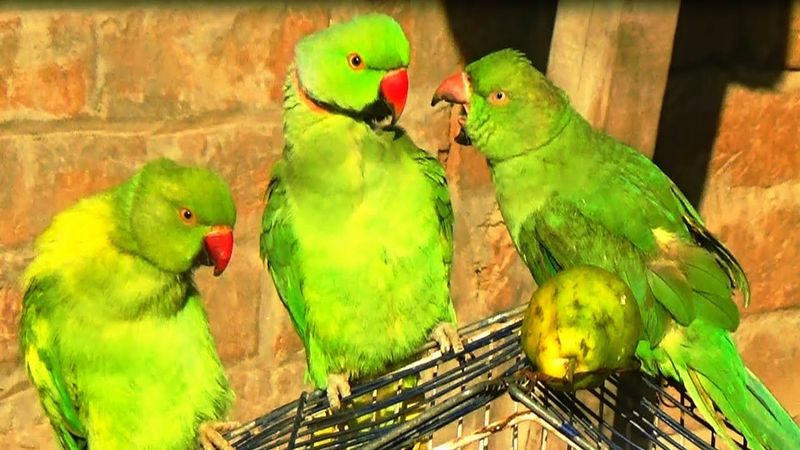
Parrots are known for their exceptional ability to mimic sounds and produce various vocalizations. A happy and healthy parrot will be vocal, often communicating with its surroundings through chirps, whistles, and even words.
Vocalizations are a parrot’s way of expressing itself and interacting with its environment. A suddenly quiet parrot or one that screams excessively may be experiencing stress or discomfort.
Encouraging your parrot to vocalize by talking to it, playing music, or providing a stimulating environment can promote its mental well-being. Understanding the context and nature of their sounds can help gauge their mood and health.
A parrot that sings and engages vocally is often content and enjoying its life. It’s essential to pay attention to any changes in their vocal patterns, as these can indicate underlying issues that need addressing.
4. Healthy Appetite
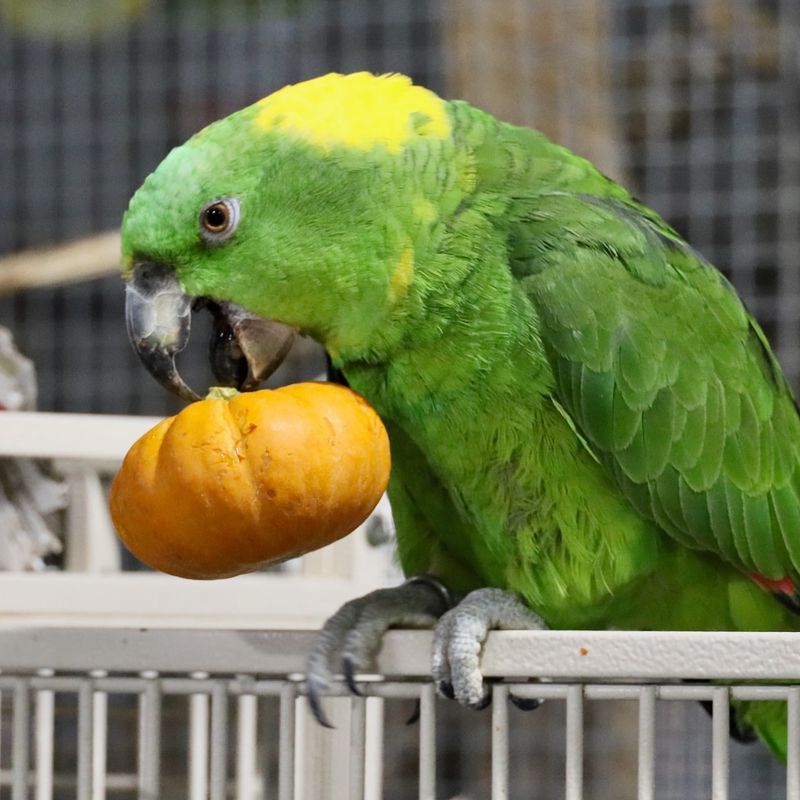
A robust appetite is a good sign that your parrot is both happy and healthy. Parrots enjoy a diverse diet consisting of fruits, vegetables, seeds, and pellets. Observing your parrot eat with enthusiasm is reassuring, indicating it’s getting the nutrition it needs.
A sudden change in eating habits, such as a loss of appetite or selective eating, can signal health problems. It’s crucial to monitor their food intake and ensure they’re consuming a balanced diet. Introducing new foods gradually can keep their diet interesting and nutritionally rich.
Providing fresh and varied meals not only satisfies their dietary needs but also keeps them engaged and stimulated. A parrot with a healthy appetite is often energetic and in good spirits, making meal times a joyful experience for both you and your feathered friend.
5. Social Interaction
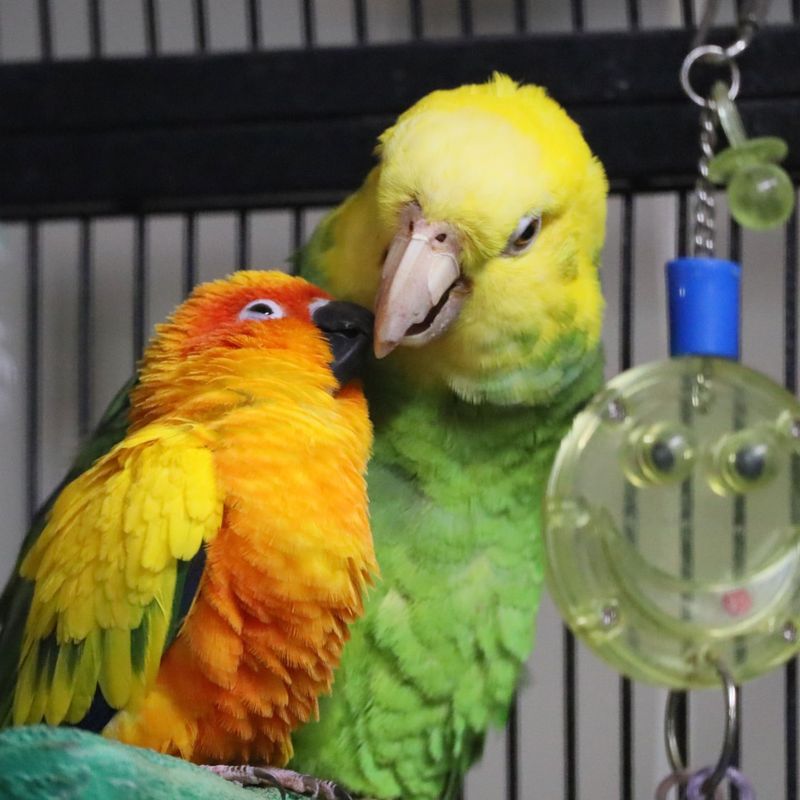
Social interaction is a vital component of a parrot’s happiness and health. Parrots are naturally social creatures, thriving on interaction with their human caretakers and other birds.
Whether it’s a gentle chat, a playful game, or simply hanging out together, these interactions are crucial. A happy parrot will seek out attention and companionship, showing interest in engaging with its family. A lack of interest or withdrawal can indicate loneliness or stress.
Building a strong bond through regular, positive interactions can enhance your parrot’s quality of life. Training sessions, social playtime, and shared activities can strengthen this bond and provide mental enrichment.
Ensuring your parrot feels part of the family unit contributes significantly to its overall happiness and well-being. It’s essential to foster an environment where social opportunities are abundant and enjoyable.
6. Alertness And Curiosity
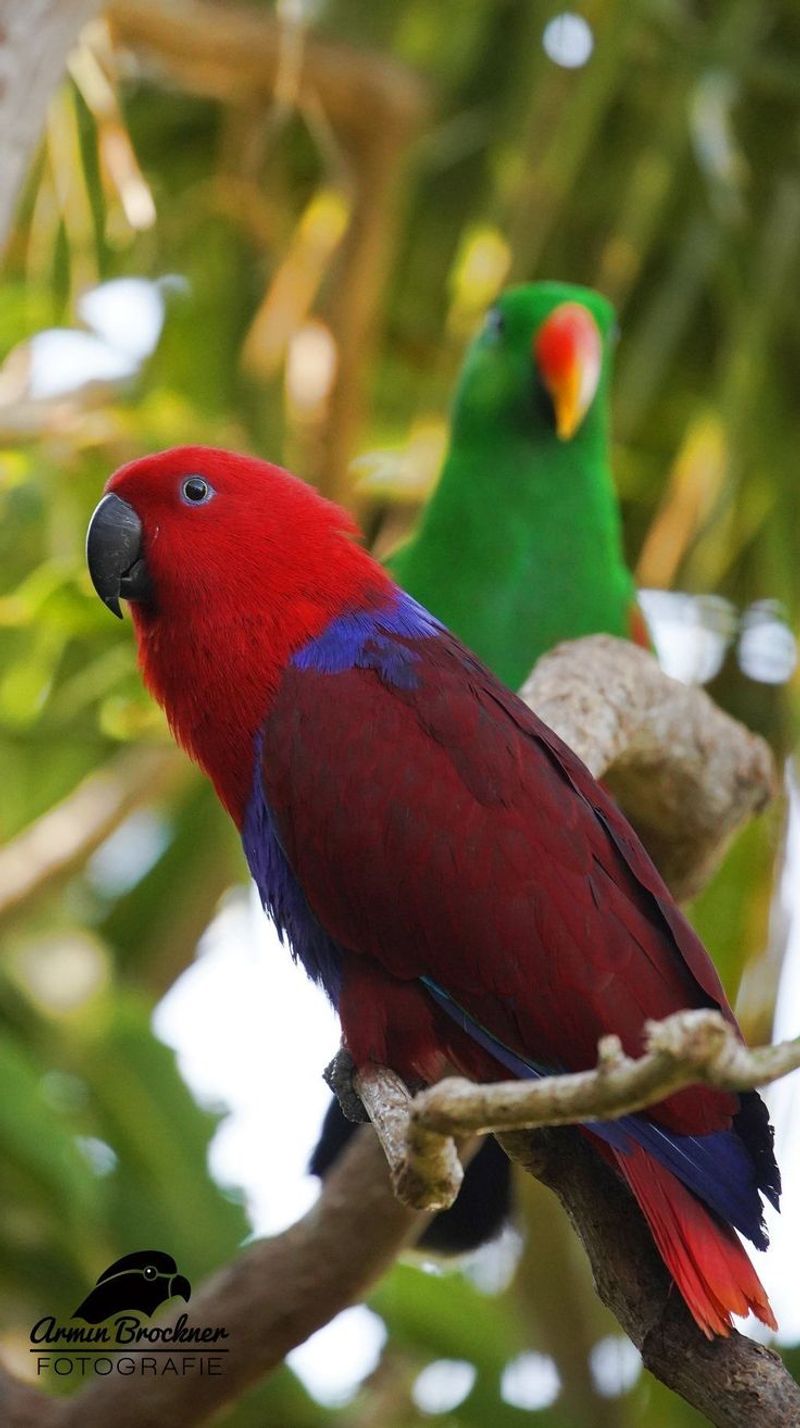
Parrots are naturally inquisitive creatures, and their alertness is a key indicator of happiness and health. A curious parrot will observe its environment, showing interest in new objects and activities. Alertness is a sign that your parrot is mentally stimulated and engaged.
A parrot that appears disinterested or lethargic might be experiencing health issues or boredom. Introducing new toys, puzzles, and activities can challenge their cognitive abilities and keep them mentally fit.
A parrot that enjoys exploring and learning about its surroundings is likely thriving. Encouraging this curiosity through interactive games and challenges can prevent monotony and enhance their quality of life.
7. Clear Eyes And Nostrils
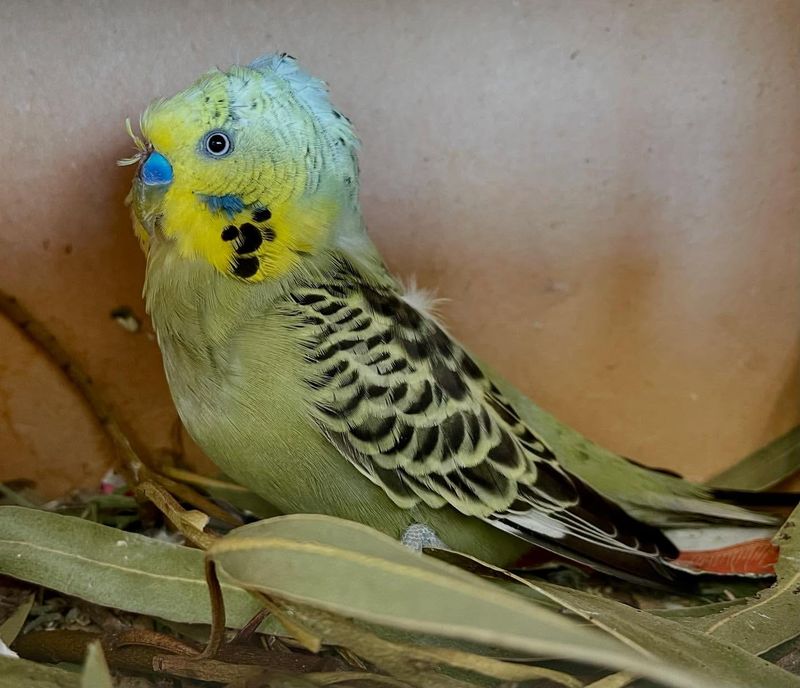
Clear eyes and nostrils are a strong indicator of a parrot’s health. Bright and clear eyes suggest good health and vitality, while any discharge or cloudiness can be a sign of illness.
Similarly, clean nostrils free from discharge indicate that your parrot’s respiratory system is functioning well. Regularly checking your parrot’s eyes and nostrils can help catch any potential health issues early.
It’s important to provide a clean environment to prevent respiratory infections and other ailments. Maintaining good hygiene and regular vet check-ups are essential to ensuring these vital aspects of your parrot’s health are monitored.
A parrot with clear eyes and nostrils is likely to be feeling its best, ready to engage with its environment and enjoy its daily activities without discomfort.
8. Engaging Playtime
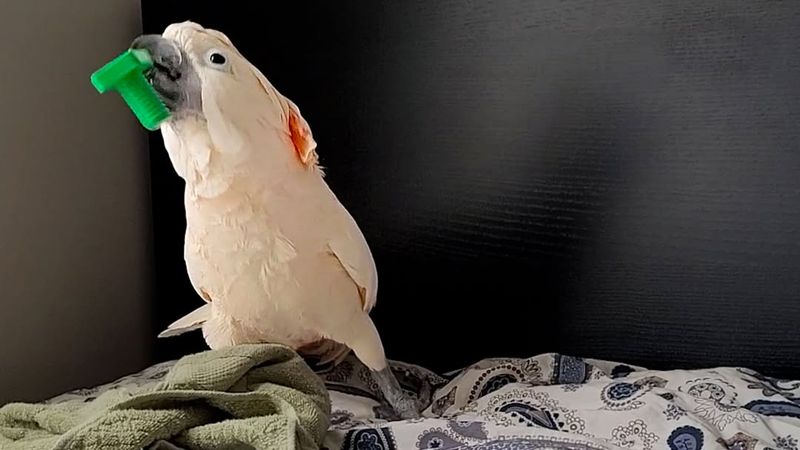
Playtime is an essential aspect of a parrot’s daily routine, contributing to its happiness and health. Engaging in play allows parrots to express themselves, exercise, and relieve stress. A parrot that enjoys playtime is often well-adjusted and satisfied with its environment.
Providing a variety of toys, such as puzzles, bells, and ropes, can keep playtime interesting and mentally stimulating. Regularly rotating toys and introducing new ones can prevent boredom and promote cognitive development.
Encouraging interactive play with their human companions can strengthen bonds and provide emotional satisfaction. A parrot that looks forward to playtime is likely enjoying a healthy balance of physical and mental well-being.
9. Stable Weight

Maintaining a stable weight is crucial for a parrot’s health and happiness. Fluctuations in weight can indicate underlying health problems or dietary imbalances.
Regularly weighing your parrot can help monitor their health status and ensure they are maintaining an ideal weight. A balanced diet and regular exercise are key to achieving and sustaining a healthy weight.
It’s important to provide a variety of nutritious foods and opportunities for physical activity. If you notice any sudden changes in weight, it may be necessary to consult a veterinarian to rule out any health issues.
A parrot that maintains a stable weight is typically healthy, energetic, and content. By ensuring your parrot’s weight remains consistent, you contribute to their overall well-being and longevity.
10. Consistent Sleep Patterns
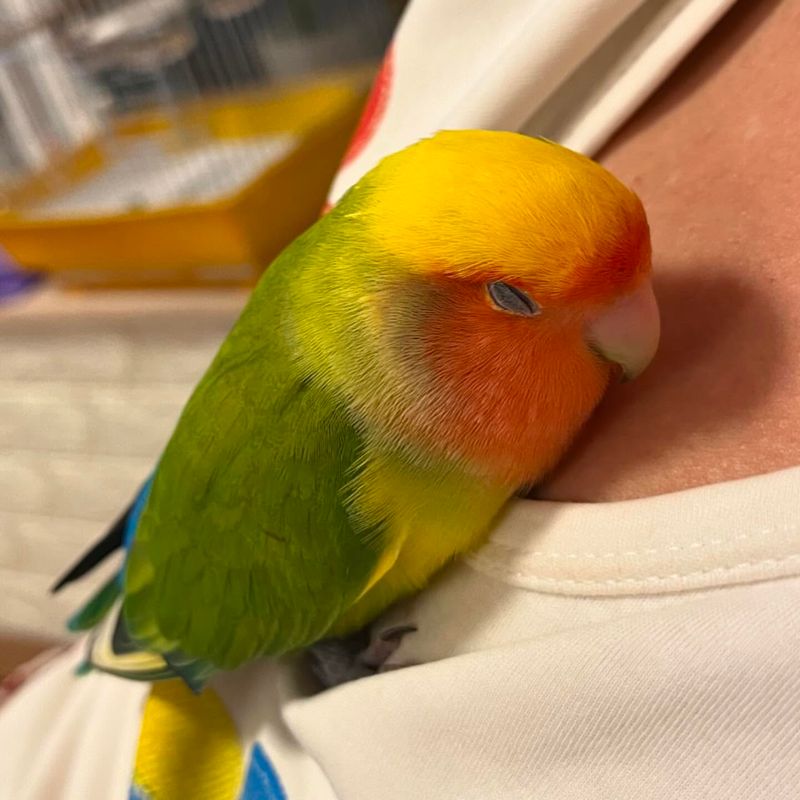
Consistent sleep patterns are a vital indicator of a parrot’s health and happiness. Parrots require adequate sleep to function optimally, typically around 10-12 hours a night.
A well-rested parrot is often more energetic, alert, and content during the day. Disruptions in sleep can lead to stress and behavioral issues, so it’s crucial to provide a calm and dark environment for restful sleep. Observing your parrot’s sleep habits can offer insights into their overall well-being.
Providing a routine with regular sleep and wake times can help regulate their internal clock. A parrot that sleeps well is likely to be happier and healthier, ready to engage with its environment and enjoy daily activities.

